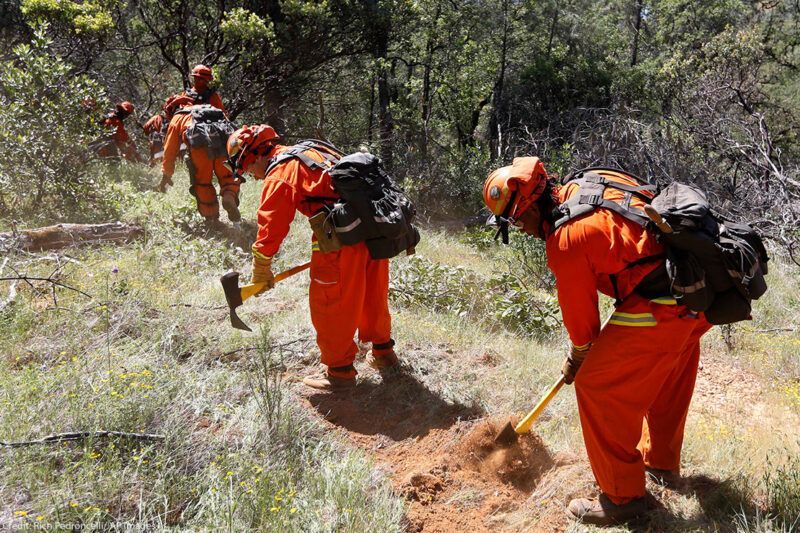ACLU Report - Exploitation of Incarcerated Workers
Updated report examines misuse of prison labor in state and federal prisons

It has been 157 years since the 13th Amendment abolished slavery, yet hundreds of thousands of people are still living legally in involuntary servitude due to loopholes in the law allowing states to extract free labor from prisons instead. Today, over 65 percent of incarcerated people report being forced to work in prison, doing jobs like firefighting and paving roads for little or no pay while governments and private companies generate billions of dollars each year from their labor.
Prison labor is inherently coercive and exploitative. Incarcerated workers are not protected by standard labor laws, like minimum wages, overtime protection, the right to unionize, and workplace safety guarantees. Many workers are forced into hazardous jobs without standard training or protective gear, often under threat of punishment, such as solitary confinement, loss of family visitation, and denial of sentence reduction, if they do not comply with orders. Lives and livelihoods are completely at the mercy of the public and private entities exploiting a cheap and captive labor force.
The federal minimum wage is $7.25 per hour; in contrast, most prison jobs pay an average hourly rate of 13 to 52 cents. Deductions for taxes, court costs, and other fees can leave workers with even less. Seventy percent of laborers surveyed in the report said they could not afford basic necessities on their paltry wages. “You can barely afford laundry soap with that amount of pay,” said an incarcerated laborer in Illinois, who reported earning only $4.80 per month working as a porter. That’s one cent per hour. Some workers are not paid at all, including the majority in Alabama, Arkansas, Florida, Georgia, Mississippi, South Carolina, and Texas.
Prison jobs often come with substantial risks to workers’ health and safety due to lack of training, inadequate protective gear, and poor work conditions that fall far short of basic safety standards applied in all other workplaces. As a result, prison labor can result in preventable injuries and deaths. “I’ve seen a man get electrocuted by a faulty wiring,” said a woman incarcerated in Illinois, who then had to return to work the next day. “I am nothing but a number to the people I am working for.”
In partnership with the University of Chicago, the ACLU conducted a study of prison labor nationwide in a new report, “Captive Labor: Exploitation of Incarcerated Workers.” Included are some of the following recommendations:
- Ensuring all prison labor is fully voluntary by eliminating laws and policies that punish people who are unable or unwilling to work.
- Guaranteeing the same standard labor protections available to other workers in the U.S., including minimum wages, overtime pay, health and safety standards, unionization, and anti-discrimination protections.
- Instituting comprehensive safety and training programs for all prison jobs.
- Investing in programs that provide incarcerated workers with marketable skills and training to help them find jobs after release.
You can download the report "Captive Labor: Exploitation of Incarcerated Workers" at the ACLU website.










